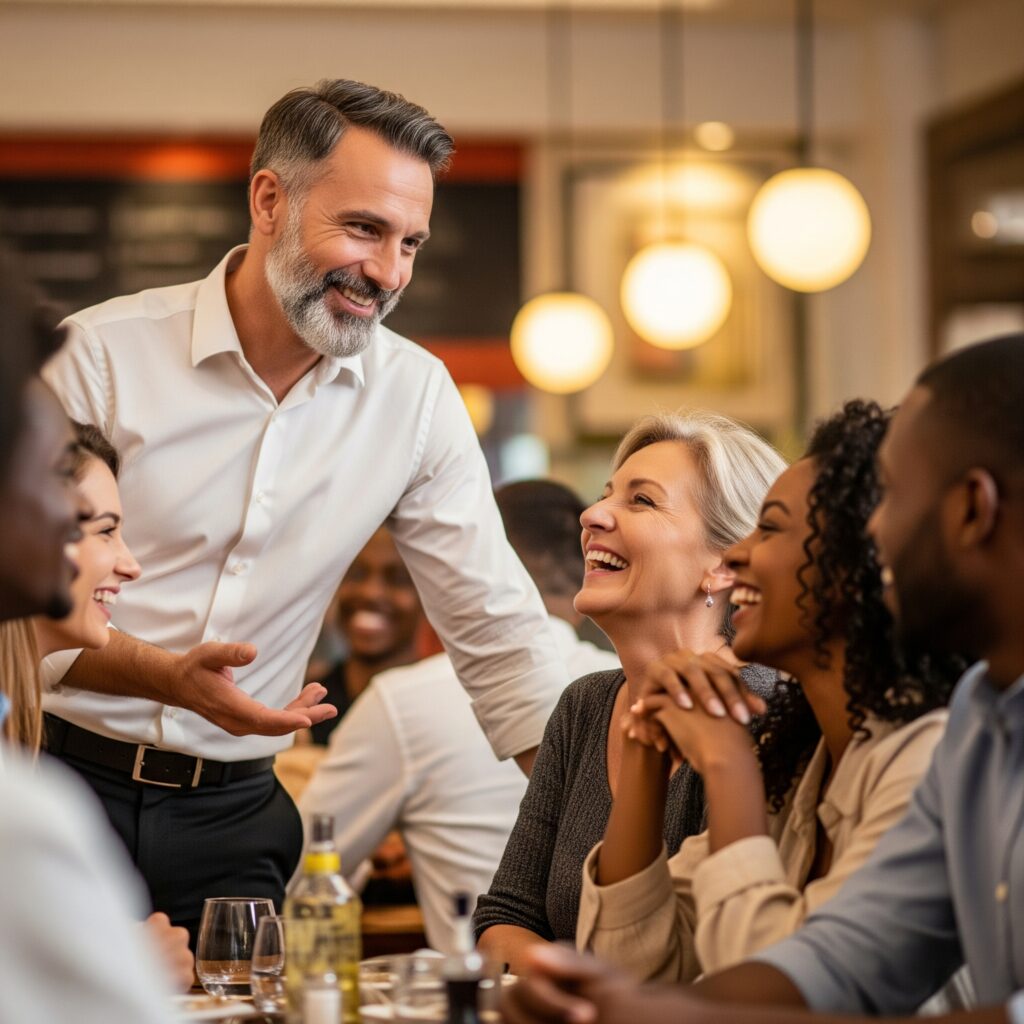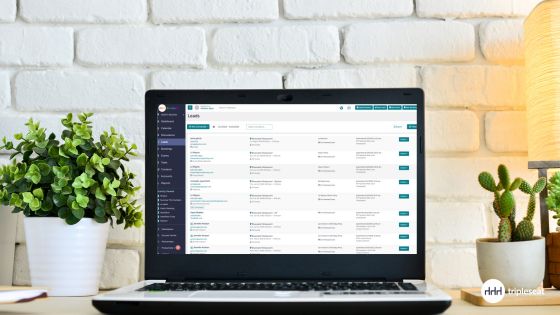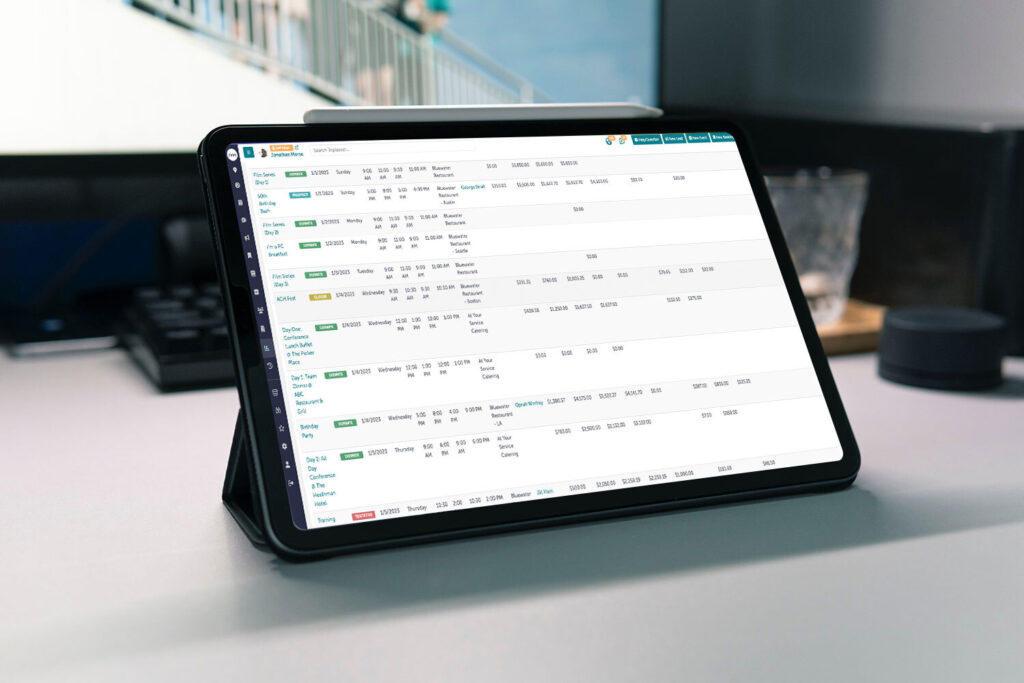The Power of a Guest CRM System: Why It’s a Must for Restaurants

In today’s fiercely competitive dining scene, great food alone can’t secure lasting success. Modern guests expect experiences that feel uniquely tailored to them—they want to be remembered, not just served. That’s why a Guest CRM (Customer Relationship Management) system is no longer a nice-to-have but an essential tool for restaurants striving to stand out.
By centralizing every piece of guest data (think favorite dishes, booking history, preferences, and more), your team gains immediate access to the insights needed to craft memorable moments. With this intelligence at your fingertips, you can deliver personalized service, launch focused marketing campaigns, and foster loyalty across all revenue channels. In this post, we’ll delve into why a CRM is a game-changer for restaurants eager to elevate their operations and boost profitability.
What is a CRM?
A CRM, or Customer Relationship Management system, is a technology that helps businesses manage and analyze customer interactions and data throughout the customer lifecycle. For restaurants, it essentially acts as a central hub for everything you know about your guests, allowing you to build stronger relationships and ultimately, increase revenue and loyalty.
Imagine a highly organized “little black book” for every single person who walks through your doors, orders from you, or books an event. Instead of just names and numbers, it holds a wealth of detailed information that’s easily accessible and actionable for your entire team.

How a CRM Benefits All Restaurant Revenue Streams
A robust CRM system offers advantages across every facet of your restaurant’s operations, transforming how you engage with customers and drive profitability.
Restaurant CRMs Improve Customer Service & Guest Experience
For both regular diners and event clients, a CRM elevates the guest experience:
- Personalized Service: A CRM captures guest preferences (e.g., favorite table, dietary restrictions, allergies, preferred dishes, wine choices, special occasions like birthdays/anniversaries). For events, this extends to noting preferred room setups, A/V needs, or past catering choices. This allows your staff to provide highly personalized service, making guests feel valued and remembered.
- Faster & More Efficient Service: With guest history readily available, staff can anticipate needs, recommend dishes, and address issues more quickly, leading to smoother service and reduced wait times for dine-in guests, and a more seamless planning process for event clients.
- Improved Complaint Resolution: If a customer has a negative experience, the CRM stores details of the issue and resolution, ensuring consistency and preventing future occurrences. This is crucial for maintaining relationships with valuable event clients.
- Loyalty Programs: CRMs are excellent for managing loyalty programs, tracking points, rewards, and offering exclusive perks to frequent diners, encouraging repeat business. This can extend to event bookers, offering incentives for repeat bookings.
- Feedback Management: Many CRMs allow for easy collection and analysis of customer feedback (surveys, reviews), providing valuable insights into what’s working well and what needs improvement. This allows for prompt responses and continuous service enhancement for both daily operations and large-scale events.
Marketing & Sales Targeting with Guest Segments
A CRM empowers targeted and effective marketing across all guest segments:
- Targeted Marketing Campaigns: By segmenting customers based on their dining habits, preferences, visit frequency, or event booking history, a CRM enables highly targeted marketing. For example:
- Sending a birthday offer to regular diners.
- Notifying “wine lovers” about a special wine tasting event.
- Promoting a new vegetarian dish to guests with a history of ordering vegetarian options.
- For events, this means reaching out to past corporate clients with meeting space promotions or inviting families who booked holiday parties last year to secure their spot for the upcoming season.
- Automated Communication: CRMs can automate email and SMS campaigns for reservations, order confirmations, special promotions, and follow-ups after a visit. For event sales, this is invaluable for automating inquiry responses, sending proposals, contract reminders, and post-event thank you notes, keeping your venue top of mind.
- Upselling and Cross-selling: Knowing a guest’s past orders or preferences allows staff to make more relevant suggestions. In event sales, this could mean suggesting premium bar packages based on a client’s past beverage choices or a dessert display based on their dietary notes.
- Understanding Customer Behavior: Analyzing data on booking patterns, popular dishes, and peak times helps you tailor your marketing efforts and promotions for maximum impact across your entire business.
- Measuring Marketing Effectiveness: CRMs provide analytics on campaign performance, showing which promotions are driving the most traffic and revenue, allowing for data-driven adjustments to your marketing strategy.
Operations are Streamlined with Customer Data
From daily service to managing complex events, a CRM streamlines your operations:
- Centralized Guest Data: A CRM consolidates all guest information from various touchpoints (POS, online ordering, reservations, event inquiries, proposals, and contracts) into one unified database, eliminating fragmented data and improving data accuracy.
- Reservation & Table Management: Many restaurant CRMs integrate with reservation and booking systems, allowing you to link guest profiles to their bookings, manage waitlists efficiently, and optimize table seating.
- Streamlined Processes: By automating tasks like sending confirmations or collecting feedback, CRMs free up staff to focus on guest interactions and other operational duties, including the detailed planning required for events.
- Data-Driven Decision Making: The robust reporting and analytics features of a CRM provide insights into sales trends, customer demographics, and operational efficiency, enabling management to make informed decisions about menus, staffing, and promotions for both daily service and private events.
Staff Management & Training is Consistent
A CRM empowers your team and fosters consistency:
- Empowered Staff: With easy access to guest profiles, every staff member, from the host to the server, and especially your event sales team, can provide a personalized and consistent experience, regardless of their tenure. This creates a more knowledgeable and efficient team.
- Training Aid: CRMs can be used in staff training to help new hires quickly understand customer segments and service standards, including specific protocols for event clients.
What Information Does a Restaurant CRM System Collect?
A Restaurant Customer Relationship Management (CRM) system is designed to gather and organize a wide array of information about your guests. The goal is to build comprehensive profiles that enable personalized service, targeted marketing, and improved operations. Here’s a breakdown of the key information a restaurant CRM typically collects:
- Basic Contact & Identity Information: Name, email address, phone number, and important dates like birthdays and anniversaries. For events, this includes the main contact for the event and their organization details.
- Booking, Reservation & Visit History: Dates and times of visits, number of guests, table preferences, and detailed event booking history (including previous event types, sizes, and specific requirements).
- Purchase & Order History (often integrated with POS): Dishes and beverages ordered, average spend, total spend, favorite items, and for events, specific menu packages, bar selections, and any special add-ons.
- Preferences & Dietary Information: Dietary restrictions (allergies are critical!), food and beverage preferences, seating preferences, and detailed notes on event-specific preferences, such as room setup, AV needs, decor, and special requests from past events.
- Communication & Engagement Data: Marketing opt-ins, email/SMS engagement, loyalty program activity, feedback, and reviews. For events, this includes a comprehensive log of all communication with the client from inquiry to post-event follow-up.
- Behavioral & Analytical Data: Customer segmentation, churn likelihood, dwell time, and preferred dining times. For event sales, this extends to identifying your most frequent event bookers, common event types, and peak booking seasons.
The power of a restaurant CRM lies not just in collecting this data, but in its ability to centralize, analyze, and make it actionable for all relevant team members, leading to truly personalized and memorable guest experiences across all your offerings.
Tripleseat’s CRM Features: Fueling Profitable Event Sales

Tripleseat stands out as a powerful platform because its core functionality includes robust CRM features for restaurants, specifically designed for event management. This seamless integration ensures that guest personalization pays off handsomely in your event business.
Pre-Event Capabilities: Early Engagement Matters
Before any event takes place, Tripleseat helps businesses capture essential customer data and preferences that can be leveraged to provide a personalized experience. This starts from the moment a customer inquires about an event. The software can track all interactions, from initial emails and phone calls to menu preferences and previous booking history.
Through Tripleseat’s CRM capabilities, your sales team can automate follow-up emails and reminders, ensuring they are always one step ahead in meeting customer needs. With all information centralized, you can easily create targeted marketing campaigns that resonate with your audience. Imagine the impact of sending a special offer to customers who frequently book corporate events or prefer vegan dining options. Focusing on these unique needs can enhance customer satisfaction even before they walk through the door, driving higher conversion rates and cementing relationships.
During the Event: Maximizing The Experience
Throughout the event, Tripleseat’s seamless management features ensure that nothing slips through the cracks. From coordinating between kitchen staff and front-of-house teams to handling last-minute changes in floorplans or menu preferences, Tripleseat keeps everyone on the same page. However, what sets it apart is its ability to capture real-time data that can be added to customer profiles. This includes preferences like favorite dishes, wines, or even room setups. As part of the CRM for restaurants system, this data becomes invaluable information for future interactions and marketing strategies, ensuring a consistent and personalized experience for returning event clients.
Post-Event: Turning One-Time Visitors Into Loyal Customers
The event might be over, but your relationship with the customer doesn’t have to end there. Tripleseat’s CRM features allow for automated yet personalized follow-up. You can send thank-you emails, request feedback, and even offer special promotions aimed at encouraging a second visit or future event booking. With built-in analytics, the software provides insights into customer behavior and engagement, enabling businesses to fine-tune their strategies.
But the power of Tripleseat’s CRM capabilities doesn’t stop there. It allows you to segment your customer base in various ways, giving you the opportunity to create targeted campaigns for different customer types. Whether it’s a loyalty program for frequent diners or a unique discount for those who book large events, Tripleseat ensures that you’re not just casting a wide net but are actually engaging in a manner that is most likely to convert and retain customers.
Target Your Customers with Tripleseat’s CRM Reporting
Tripleseat’s reporting features let you leverage your CRM data for highly effective marketing directly tied to event sales profitability.

- Find Your Most Booked Contacts: Easily pull a custom report to identify your most loyal event clients. Filter by date range and number of events booked (e.g., 3+ events). This gives you a targeted list to send exclusive offers like waived room fees, upgraded bar packages, or a percentage off their next event. This direct appreciation fosters loyalty and encourages repeat business from your most valuable clients.
- Reach Your Corporate Contacts: Want to target your corporate accounts? No problem. Pull a custom account report, include “market segment” as a column, and filter for all corporate accounts. Reach out to their main contact by email and offer them a free A/V package upgrade or complimentary coffee bar if they book their next corporate meeting at your venue.
- Target Holiday Event Customers: If holiday events are what you’re trying to book, pull a custom event details report from previous holiday seasons (e.g., November 1, 2024– January 31, 2025). Group the report by event type to easily see which events were holiday-related. Reach out to these contacts to let them know it’s never too early to book their holiday party, perhaps offering no minimums or a free champagne toast. This proactive approach leverages past successful relationships for future bookings.
CRM Tool for Restaurants: Make Every Customer a Returning, Happy Customer
In a highly competitive landscape, offering great food and ambiance is not enough. Tripleseat provides not only the tools to manage events efficiently but also serves as a robust CRM platform for restaurants and venues. By utilizing Tripleseat’s features before, during, and after events, you’re not just ensuring a successful event but are laying the foundation for a long-term, profitable relationship with each customer. When considering event management solutions, remember that Tripleseat is a tool that truly empowers you to make every customer a returning, happy customer, driving significant revenue through personalized event sales.
Ready to see how Tripleseat can transform your restaurant’s event sales and overall guest relationships? Request a demo today.
